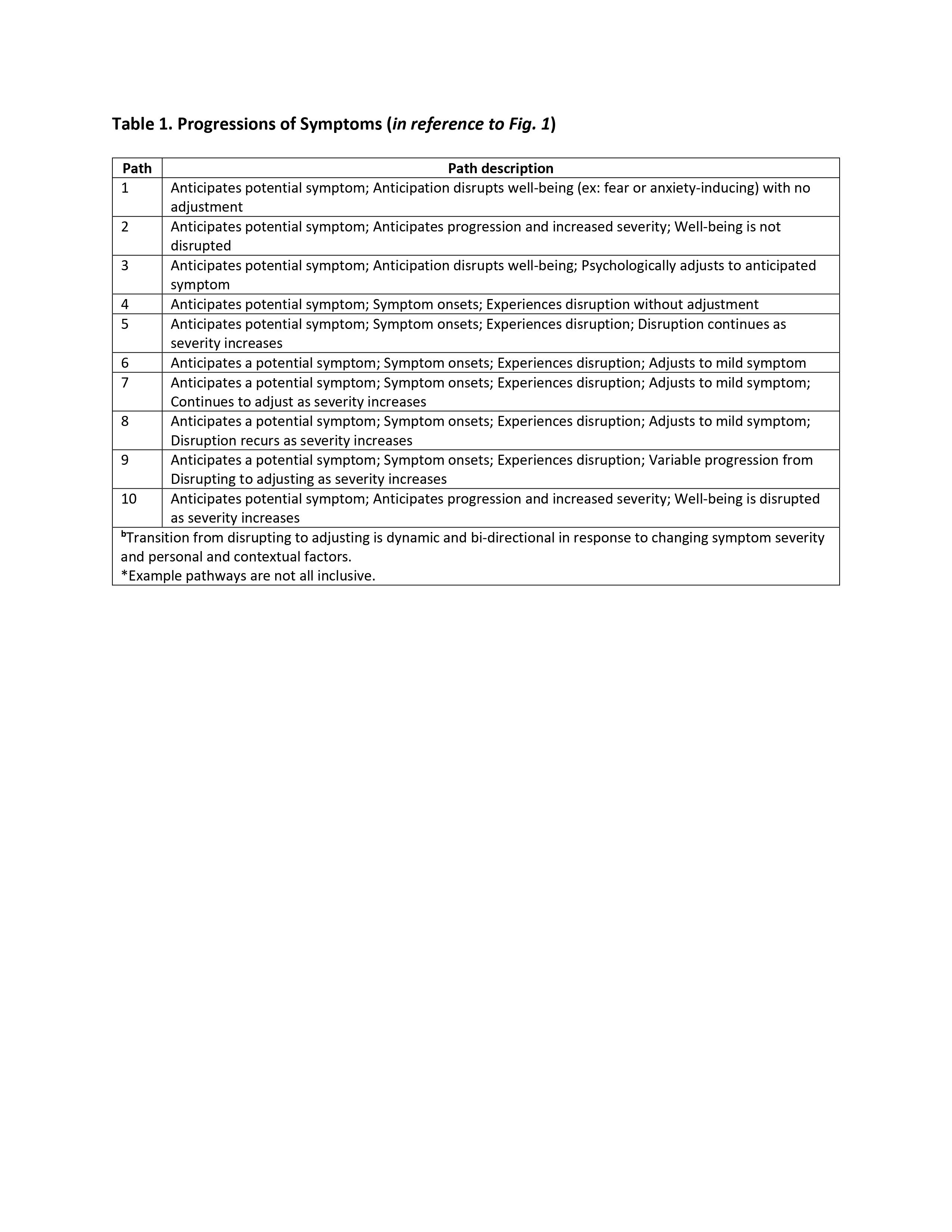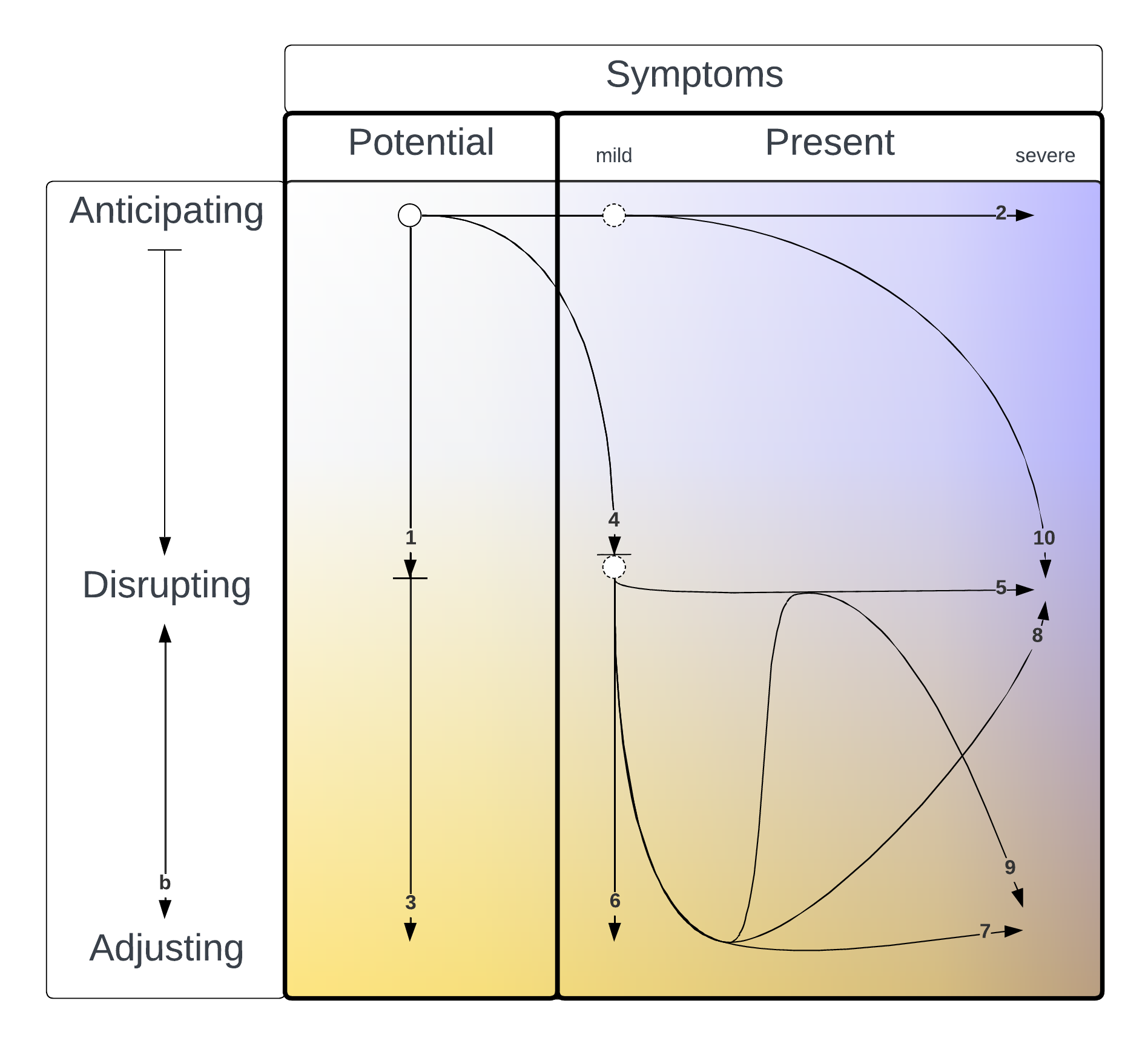Category: Parkinson’s Disease: Clinical Trials
Objective: To qualitatively evaluate how individuals’ adjust to and cope with symptoms of Parkinson’s disease (PD).
Background: The WATCH-PD qualitative study is evaluating meaningful symptoms and impacts of early PD and how these change over time, including what makes symptoms bothersome or important.
Method: Online interviews were conducted 1:1 via zoom and included symptom mapping to identify meaningful symptoms and impacts of PD. Symptom maps and interview transcripts were coded using thematic and content analysis techniques. Thematic mapping occurred using XmindTM and NVivoTM software. Participant quotes were used to support presence of themes.
Results: 33 participants completed interviews. Interviews lasted 2 hours on average. We found that coping with PD is a complex and dynamic process. The extent to which specific symptoms are bothersome and affect well-being appears to be influenced by contextual factors (e.g., retirement vs. active employment) as well as an individual’s personal ability to physically accommodate and psychologically adjust. As shown in [Figure 1], three stages of coping were thematically identified. These included (1) anticipating onset or worsening, disrupting personal well being, and (3) adjusting to the impact of symptoms. How an individual progresses through these stages varies widely based on a range of personal and contextual factors and their ability to adjust to the impact of sypmtoms. For example, an individual may anticipate onset of a potential symptom before it occurs and experience disruption as a result of the anticipation alone (Path 1). Alternately, individuals with PD can experience a symptom and continue to anticipate progression and increased severity (Path 2). Others might progress from anticipating to adjusting to mild impacts, but experience disruption with greater symptom severity, most often due to limited ability to accommodate and adjust functionally (Path 9).
Conclusion: People with PD anticipate the onset of new and worsening symptoms that can lead to varying degrees of disruption in personal functioning. Symptoms become more disruptive (bothersome) when the individual has less ability to accommodate for functional impacts, whereas disruption diminishes with improved physical and psychological coping mechanisms.
Table 1.
Figure 1.
To cite this abstract in AMA style:
A. Lerner, J. Mammen, R. Al-Rubayie, M. Kostrzebski, J. Adams. WATCH-PD Qualitative Study: A Mental Model of Coping with Disease Progression [abstract]. Mov Disord. 2024; 39 (suppl 1). https://www.mdsabstracts.org/abstract/watch-pd-qualitative-study-a-mental-model-of-coping-with-disease-progression/. Accessed January 18, 2026.« Back to 2024 International Congress
MDS Abstracts - https://www.mdsabstracts.org/abstract/watch-pd-qualitative-study-a-mental-model-of-coping-with-disease-progression/


